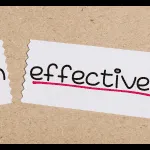
Mediation has been on the ascent in resolving disputes short of trial over the past decade. In this COVID age of closed trial courts and uncertain trial dates, mediation provides an opportunity to obtain a fair resolution in a timely manner.
During the 27 years I practiced as a civil litigator, seven-plus years on the bench, and ten and a half years in private dispute resolution I have seen a sad decline in professionalism and civility in the practice of law. My hope, and those shared by organizations such as the Los Angeles County Bar Association and the American Board of Trial Advocates, is that there will be an increasing awareness by practitioners that we enjoy a career in a wonderful profession, not just a job, and with that comes the duty to act as thoughtful professionals.
Before addressing my concerns about the need for civility in the process of mediation, I want to point out the advantages of a mediated resolution, many of which are obvious to the attorneys, but not encouraged often enough to their clients to get their “buy-in” to the process.
First, we are in an era of uncertainty as to when civil trials, both jury and non-jury, will again be widely available.
Second, it is the only chance the parties have to create an acceptable resolution short of having someone, (a judge or jury), tell them what to do. This is particularly important for a couple of reasons. Preliminarily, as Judge Lawrence Waddington used to remind me when I was a trial attorney, “Settlement buys certainty.” That message is one which counsel must discuss with his or her client, as there is inherent value in the certainty of resolution and the ability to “move on.”
One of the keys to successful mediation is the recognition that one does not “win” a mediation. Rather, the parties are able to engage in a process of evaluation in a non-confrontational setting that will result in a resolution that is acceptable to all parties.
Another aspect often overlooked is that a mediated resolution is far more likely to be easily enforced than a judgment that may be appealed or delayed in compliance. I found this particularly true in family law and HOA matters, where the parties have a continuing relationship with each other.
Remote mediations create opportunities and problems. It eliminates the need for the various participants to travel to a particular office, saving time and money, and perhaps allowing the parties to feel more comfortable in their surroundings.
On the other hand, as a mediator, I need to create a relationship with the parties, which is more difficult by not being in the same room, and if the clients and counsel are in different locations they, too, have a different environment of communication. Of course, counsel and client may choose to be in the same location, socially distancing, or utilizing other personal health safety precautions.
As a segue into my thoughts on civility in the process of mediation, consider that one should not confuse civility with weakness. Civility and professionalism should transcend the gamesmanship and posturing often found in litigation.
To be successful in mediation, the parties should engage in the mediation willingly, and with reasonable expectations of what constitutes a successful resolution. Bear in mind that one does not “win” a mediation, but resolves a dispute on terms acceptable to all parties.
It is my belief that in most cases the mediation should start with the opposing parties in separate “rooms.” This tends to reduce immediate conflict and confrontation that often results when parties who are suing each other are placed in the same room. There is an immediate tendency for counsel to “put on their gladiator suits” and go into litigator mode, with each side trying to both convince the other of the strength of its position, simultaneously reinforcing the client’s commitment to his or her position, thereby reducing the probability of reasoned negotiation.
Conversely, I start with the parties separated and give each side an opportunity to explain their position, which hopefully had been explained in a brief provided to me several days before the mediation, and shared with opposing counsel.
It is important to remind everyone that this process has great benefits, reduces the level of conflict, and can result in a resolution that may in fact be more favorable than what a court could ultimately order.
That is where civility and professionalism really need to kick in. Counsel need to have prepared the client to participate meaningfully and to be willing to compromise to obtain resolution. Additionally, counsel must not engage in the “gladiator” posturing in front of the client, as that is really not going to contribute to a mood of compromise and cooperation. Avoid name-calling of parties or counsel, or denigrating the quality of the opposing counsel or position. Respect the parties and counsel, and acknowledge there may be some validity to opposing points of view.
It is, of course, helpful to have contacted the mediator in advance of the hearing to discuss any special issues of fact, law, or, perhaps most importantly, personality, that will be critical in obtaining resolution. Remember there is no prohibition of ex parte communication in mediation, and by all means, talk with opposing counsel before the mediation and discuss your position on settlement, what constitutes a successful resolution from your point of view, and how that can be obtained.
It is this professionalism and civility in communication, preparation, and presentation that can create the atmosphere for meaningful discussion reasoned compromise and negotiated resolution that is the purpose of mediation.
Must-read Articles:
- The Art of Coalition Building: The Basics - April 9, 2024
- Mediating With Civility In The Age of COVID - November 6, 2020
- Share Mediation Briefs to Save Time and Get Better Results - October 29, 2020


